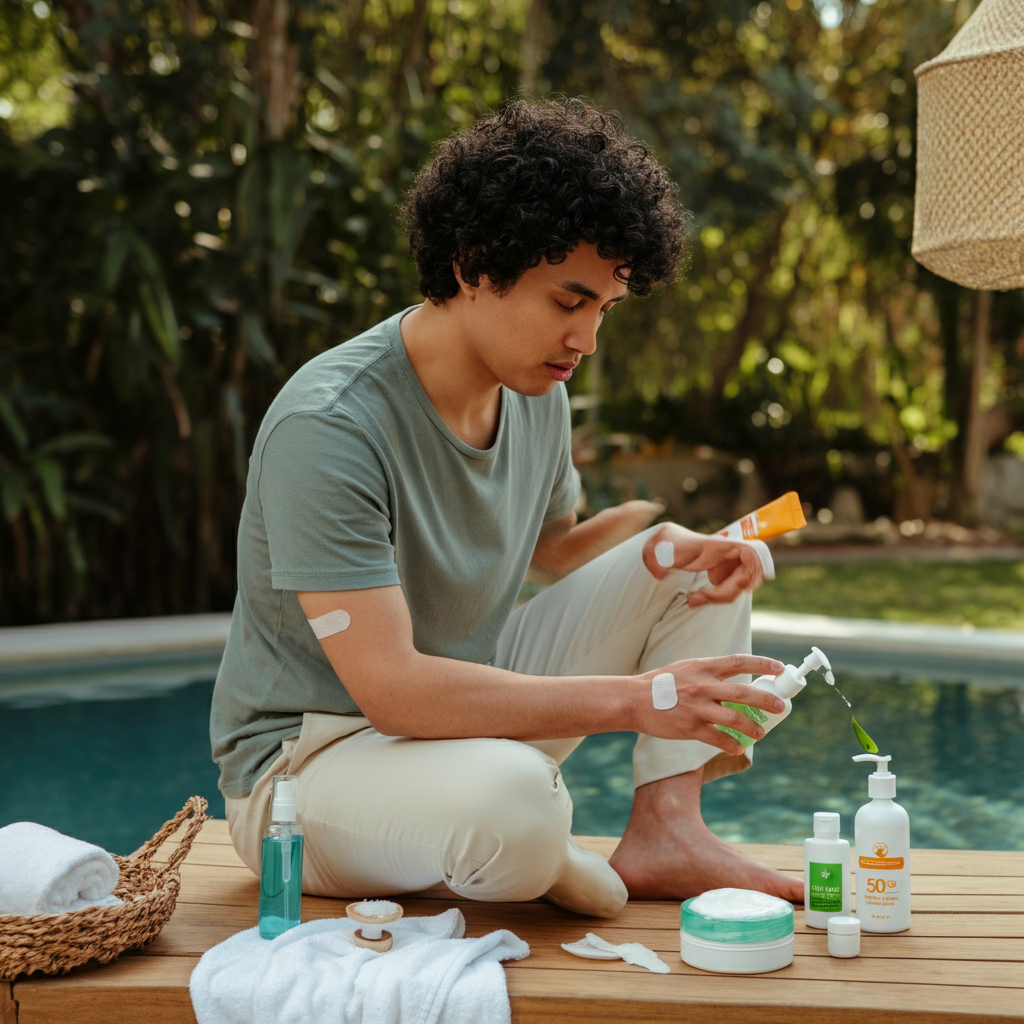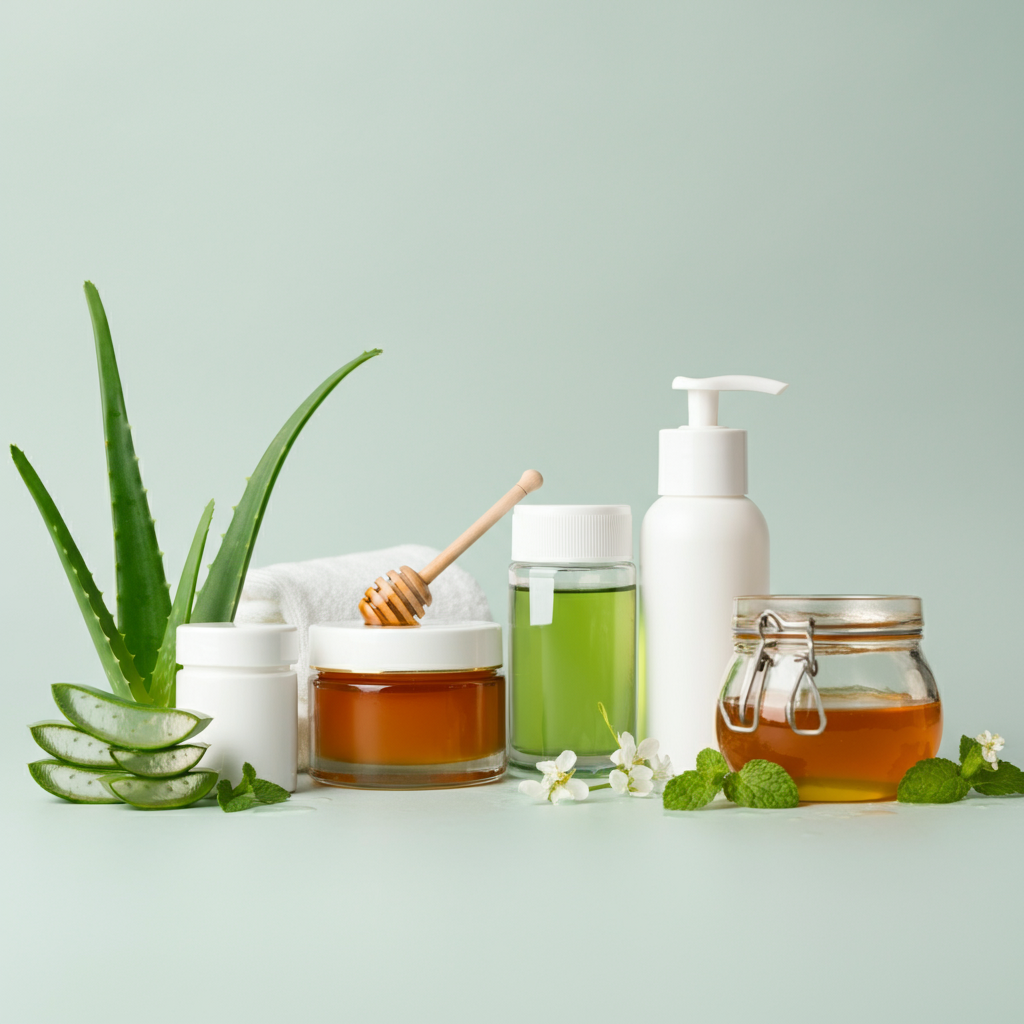Scars tell a story. They remind us of healed wounds, surgeries, or unfortunate accidents. While some see them as marks of resilience, others might feel self-conscious and long to reduce their appearance. Thankfully, modern science, paired with tried-and-true natural remedies, has provided us with many effective methods for scar removal and management.
Whether you’re dealing with acne scars, surgical marks, or accidental injuries, this comprehensive guide will walk you through the best options for treating scars. From topical treatments to professional therapies and DIY natural remedies, we’ve got you covered. By the end, you’ll feel equipped with the tools and knowledge to make informed decisions about your scar treatment.
Understanding Scars
Before jumping into treatments, understanding scars is essential. Not all scars are created equal, and the way they form can influence how they heal.
Types of Scars
- Keloid Scars
- Raised and thick scars that extend beyond the wound’s boundary.
- Common in darker skin tones and caused by an overproduction of collagen.
- Hypertrophic Scars – Raised scars confined to the wound’s original area. – Can fade over time with treatment.
- Atrophic Scars
- Depressed scars, often resulting from severe acne or chickenpox.
- Appear sunken due to the loss of underlying tissue.
- Contracture Scars
- Typically the result of burns, causing skin to tighten and restrict movement.
Factors Influencing Scar Formation
- Genetics: Some individuals are genetically predisposed to form larger scars.
- Age: Younger skin heals differently than more mature skin.
- Skin Type: Darker skin tones are more prone to keloids, while fairer skin may show more discoloration.
Topical Treatments for Scar Removal
If you’re looking for an accessible, non-invasive start to your scar treatment, topical products are often the first line of defense.
Over-the-Counter Creams and Ointments
Pharmacies offer numerous scar creams containing ingredients like vitamin E and peptides to improve skin texture and elasticity. Popular examples include Mederma and Bio-Oil.
Prescription Retinoids and Corticosteroids
For more stubborn scars, dermatologists recommend retinoids (like tretinoin) to boost collagen production and corticosteroids to reduce inflammation.
Silicone-Based Products
Silicone gels and sheets are clinically proven to soften scars and reduce redness. Products like ScarAway and NewGel+ are excellent choices for consistent results.
Natural Remedies Worth Trying
For those who prefer holistic approaches, nature offers several effective remedies.
Aloe Vera
Known for its soothing properties, aloe vera is a go-to for reducing scar redness and promoting skin regeneration.
How to Use:
- Apply fresh aloe vera gel directly on the scar.
- Leave it for 30 minutes, then rinse off.
Onion Extract
A key ingredient in many scar creams, onion extract regulates collagen production, reducing the size and discoloration of scars over time.
Best Method:
- Try store-bought products like Mederma Advanced Scar Gel, which include onion extract as a primary component.
Honey
Honey, especially raw honey, is a natural humectant with antibacterial properties that can keep scars hydrated and promote healing.
How to Apply:
- Dab a thin layer of honey on your scar before bedtime.
- Cover it with a bandage and wash it off in the morning.
Professional Treatments for Scar Removal
While home remedies and topical solutions offer great results, professional treatments are often the best route for severe scars.
Laser Therapy
Laser treatments target scar tissue and encourage skin resurfacing, making scars less visible over time. Popular for both raised and sunken scars.
Micro-Needling
Micro-needling involves creating micro-injuries in the skin to stimulate collagen and elastin. It’s especially effective for atrophic scars.
Chemical Peels
This exfoliating process removes the top skin layer, promoting the growth of new, smoother skin.
Surgical Options
For severe cases, surgical removal or skin grafting may be the most effective solution. Always consult a certified practitioner.
Preventative Measures to Minimize Scars

The best treatment for scars often starts with prevention. Master the art of proper wound care to limit their formation.
- Wound Care
Keep wounds clean, covered, and moisturized.
- Sun Protection
UV rays can darken scars, making them more visible. Always wear SPF.
- Avoid Picking
Picking at wounds slows healing and creates larger scars.
Lifestyle and Dietary Considerations
Consistent healthy habits can aid the healing process.
- Stay hydrated to maintain optimal skin elasticity.
- Focus on diets rich in vitamin C, zinc, and protein to support repair.
- Consider supplements like collagen or hyaluronic acid to boost skin health.
Debunking Common Scar Treatment Myths
There’s no shortage of misinformation when it comes to scars. Don’t fall for these all-too-common myths:
- Myth: Scar creams work overnight.
- Truth: Even the best creams take weeks to months of consistent use.
- Myth: Tanning hides scars.
- Truth: Sun exposure can worsen scar discoloration.
- Myth: Vitamin E is the ultimate cure.
- Truth: While it works for some people, studies show mixed results.
Understanding these myths ensures you have realistic expectations when starting treatments.
People Also Ask
Can scars completely go away?
Most scars won’t disappear entirely, but treatments can significantly reduce their appearance.
How soon should I treat a scar?
The earlier you start (once the wound heals), the better the results.
Are natural remedies safe for everyone?
Most natural remedies are safe, but it’s always best to do a patch test.
What is the most effective scar treatment?
The most effective treatment depends on the type of scar. Silicone gel, laser therapy, and micro-needling are widely regarded as some of the best.
How do I prevent a scar from forming?
Focus on wound care, hydration, and protecting the healing area from sun exposure.
Taking Charge of Scar Treatment
Scars are a natural part of the body’s healing process, but they don’t have to define your skin’s story. With the right combination of treatments—from natural remedies to advanced professional options—you can significantly improve their appearance.
If you’re ready to take the next step, start by pinpointing the type of scar you want to treat. Consult with professionals for severe cases, or explore trusted topical and natural remedies for smaller scars. Remember, consistency is key to seeing noticeable results.
Got more questions? Drop them in the comments or reach out directly. Your skin deserves to glow beyond the scars.
